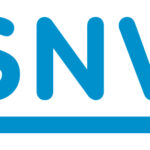Job Description
The Make Way programme will carry out an ETE covering the entire programme implementation period, to evaluate the programme from both a programmatic as well as a partnership collaboration perspective. The evaluation will focus mostly on the relevance, effectiveness, coherence and sustainability of the Make Way programme, and will assess what the contribution has been of Make Way’s activities to changes or results at different levels in the countries and at the regional and global level.
Objectives
The ETE should be guided by the following objectives:
To describe and assess the extent to which the Make Way programme realised its overall programme ToC and its context-specific ToCs, how this was done, and what the contributions of the contextualised programmes to the overall programme have been.
To assess the partnership collaboration of the Make Way programme, specifically focusing on the coherence of the partnership and on ‘leading from the South’.
To collect lessons learned and identify good practices that could be replicated, and provide recommendations for strategic decisions to be made at organisational level and/or partnership level to consider in future partnerships similar to Make Way.
Practical considerations, deliverables, timelines
Consultancy team, approach, roles & responsibilities
We envision this consultancy assignment being implemented by an independent team that consists of a lead consultant (team), and consultants/researchers based in Make Way implementation countries. We welcome the consultants to present their ideas on how the team will be practically set up and how it will work together [1].
We expect that the main part of the work will be led by the lead consultant. They should be responsible for the collaboration with and the management of the consultants in the programme countries. The lead consultant should propose the consultants in the countries with whom to collaborate. The selection should be based on already established working relationships and previous collaborations, so the national consultants do not need to be recruited during the inception phase.
The application for this assignment should be submitted by the lead consultant, but should include detailed information about the team of consultants that will carry out the assignment (see submission requirements below).
Deliverables, key dates and timeline
Deliverables
The main output of the ETE process is the final Make Way ETE report, which will consist of one consolidated analysis and six sections for the implementation context analyses. The consolidated report will include an analysis of findings from the six implementations contexts, and the linkages between the countries and the regional and global level context.
The final ETE report, including the consolidated analysis and six context analyses, will need to be written and delivered in English. We are open to discussing the feasibility and possibility of having (some of) the context analyses translated in national languages, if there is an interest in this by the programme, in particular by our CCGs, and we would like to discuss the option of having a presentation of the final ETE report by the consultants to the partnership, including reference group. We furthermore welcome the final ETE report to be written in accessible language and to be designed in a visually attractive way, so that it can be distributed among and used by different target audiences.
Requested competencies
The Make Way consortium wants to contract a lead consultant, researcher, organisation or institute to conduct the ETE. The lead consultant will collaborate with and manage researchers/consultants based in Make Way countries. The consultants involved in this assignment should have the following competencies (see below).
Desired profile of the applicant
Required:
Master’s degree in a relevant discipline, e.g. social sciences.
For the lead consultant, extensive experience is expected – a minimum of five years – in programme evaluations of (complex) development programmes, including programmes that work with a Theory of Change. For the other consultants in the team, at least three years of experience in the same area of work.
For the lead consultant, a proven track record in setting up and managing evaluations of large multi-year multi-country programmes/partnership.
Advanced skills in using social science research methods and applying qualitative research and data analysis methodologies in evaluations, specifically for lobby and advocacy programmes.
Knowledge of and experience with working on evaluations on lobby and advocacy, in international development programmes.
Knowledge of programming for sexual and reproductive health and rights.
Excellent facilitation and coordination skills.
Experience in organising virtual meetings/workshops (by making use of e.g. Zoom, Teams, Mural, Miro, or an equivalent) and using remote data collection methods.
Excellent oral and written proficiency in English.
Experience with data visualisation (tools) and report writing.
Assets:
Affinity or experience with evaluations in (one or more of) the Make Way implementation contexts.
Experience with participatory and/or youth-led evaluation methods.
Specialist knowledge of/experience with working with intersectionality (theory).
Understanding and affinity with one or more of the following topics: health systems (strengthening); working with minoritised (youth) groups; meaningful youth participation; and disability.




